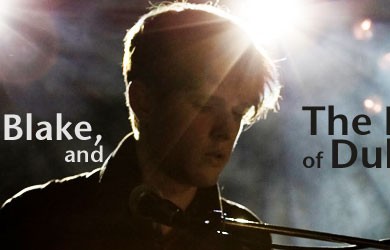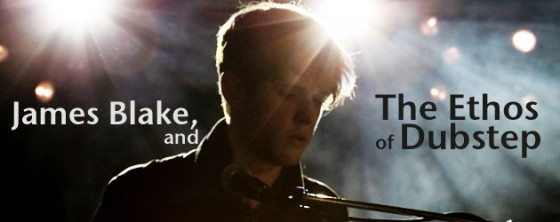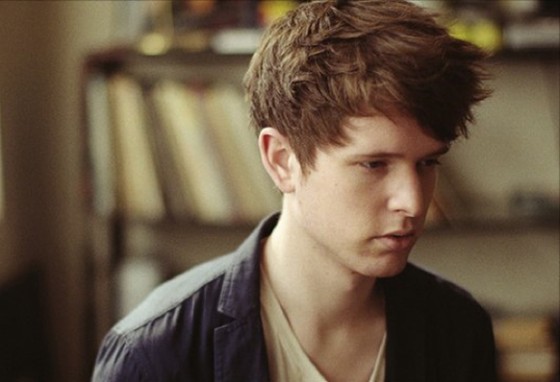Rainy weather aside, the atmosphere at James Blake’s performance at the Phoenix Concert Hall was one of unreserved anticipation. The crowd that filled the Phoenix was a soggy, but eclectic, mix of hip twenty-somethings, all of whom fell silent as Blake’s lanky figure took to the stage. Blake immediately hypnotized the crowd in a trance of vibrating bass, intricate drums and hauntingly beautiful vocals that have come to capture his renowned post-dub sound.
The most moving moment came with his performance of “To Care (Like You)”. The tempo was a sensual reflection of the human passion, with a mantra of vocals that made the performance irresistible. I left the venue intoxicated and even more enamored with James Blake and his craft.
Following his showing at the Phoenix that past night, I awoke to find the web abuzz with his name. Much of the attention was in response to his comments on the evolving dubstep scene in a recent interview with the Boston Phoenix:
I think the dubstep that has come over to the US, and certain producers — who I can’t even be bothered naming — have definitely hit upon a sort of frat-boy market where there’s this macho-ism being reflected in the sounds and the way the music makes you feel. And to me, that is a million miles away from where dubstep started. It is a million miles away from the ethos of it. It’s been influenced so much by electro and rave, into who can make the dirtiest, filthiest bass sound, almost like a pissing competition, and that’s not really necessary. And I just think that largely that is not going to appeal to women. I find that whole side of things to be pretty frustrating, because that is a direct misrepresentation of the sound as far as I’m concerned.
Truthfully, most art suffers from distortion by popularization, often resulting in a léger-version of the what adherents to the genre would refer to as the epitomized form or main ‘ethos’ of the sound. Nevertheless, Blake’s statements leave me more inquisitive than anything.
Who defines the authentic ethos of a genre? Should diversions from the purest form of the genre be discouraged?
Is Blake presumptuous to reduce other versions of the genre with the label of a lesser merit?
For any genre of music, this reoccurring problem arises with increased popularity.
‘Classicists’ within the scene are often filled with contempt when the genre becomes marketable and diluted by the ‘evils’ of the mainstream. Soon the authenticity of many sub-genres comes into question following the predictable pattern of a genre’s transition from the underground to the scrutiny of the mainstream. Reluctantly, the trajectory of many of these genres becomes unavoidable, with many final products being a watered- down, mass-produced sound marketed for the general public.
James Blake’s statement raises the issue of whether dubstep has reached this pivotal point. Is dubstep destined to suffer the same fate as the tiresome indie ‘buzz band’ phenomenon? Will consumers’ patience soon outweigh their appreciation for a performance like James Blake’s, instead seeking quick-and-easy crowd-pleasers such as Skrillex?
It would be a shame to believe that this is the case, but I hold out hope for a happy medium. Idealism, pretension and trends aside, the way the music makes you feel is what is of the utmost importance. If you are able to find enjoyment, entertainment, or inspiration from any variation of the genre, the music has served its purpose.


